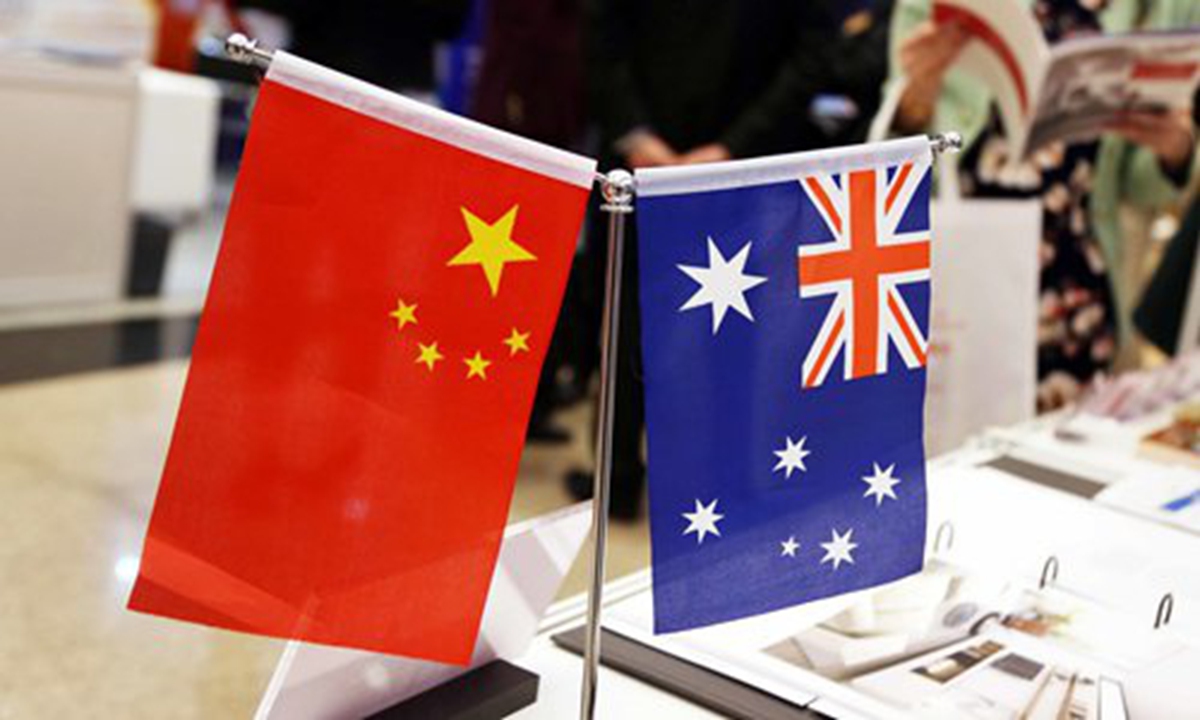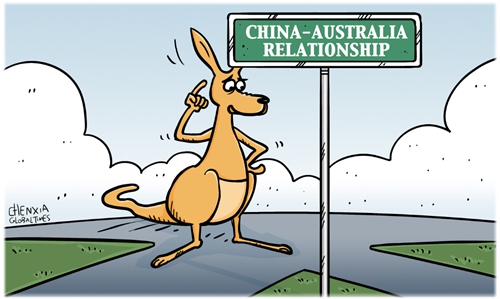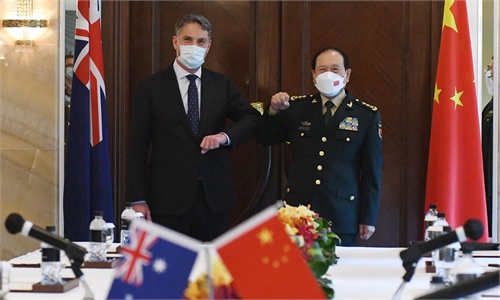
China Australia File photo
Australian Prime Minister Anthony Albanese said on Tuesday that any further improvement of China-Australia relations would hinge on whether or not China would lift "sanctions" on a wide-range of Australian exports, Bloomberg reported. Bilateral relations finally showed some signs of thawing after the defense ministers met in Singapore on Sunday, but Albanese's remarks only sent mixed signals when it comes to the possibility of a reset in relations with China.Given Australia's current economic doldrums, it may be understandable the new prime minister's eagerness to remove obstacles to economic and trade ties with China, but that doesn't mean Australia can put the cart before the horse.
No good purpose could be served with groundless accusations if Australia still wants to pursue greater economic interests in its relationship with China. Australia should first resolve whether to follow the US strategy to make an enemy of China or to treat the country as a cooperation partner.
The current difficulties in China-Australia trade are entirely due to the unprecedented, irrational anti-China policies of the former Morrison government, which created tension and obstacles in the trade environment. Australia launched more than 100 anti-dumping and anti-subsidy investigations against Chinese products and turned down Chinese investment projects. In particular, its ban of Chinese tech company Huawei from the 5G network on "national security" grounds is a signature political event. Under such circumstances, it would be a bit arrogant and frivolous for Australia to ask China to first improve trade before changing its hostility toward China. If anything, it needs to show its sincerity first by removing the ban on Huawei.
Australia is the obvious disrupter of China-Australia political relations. It has joined the US alliance aimed at containing China and participated in the US strategy of pressuring China when it comes to issues like regional security, human rights, among others. How can the hostility toward China ensure the economic and trade relationship between the two sides?
So if China-Australian economic and trade relations are to be improved, changes must be made to Canberra's political and diplomatic policy direction to repair ties. Australia needs to stop viewing China as an adversary. The hostility is unjustified. There are no historical grudges between China and Australia, and there is no geopolitical conflict, either.
China has never positioned Australia as a rival. It is always hoped that Australia would be more active in the development of the Pacific region to play the important role it is supposed to play, rather than following the US lead.
Since Albanese was sworn into office, the Chinese side has released quite a few goodwill gestures to the new government. Chinese Ambassador to Australia Xiao Qian said recently that a healthy and stable relationship between Australia and China is in the interests of our two countries, and "We are expecting a friendly response from the Australian side," according to the Daily Mail.
Australia is blessed with vast reserves of natural resources, while China offers a huge consumer market and massive manufacturing capacity. The two countries have the economic foundation to be partners and friends.
The Albanese government needs to see improvement in bilateral relations is a win-win for both countries and to shoulder the responsibility of safeguarding Australia's real interests.



